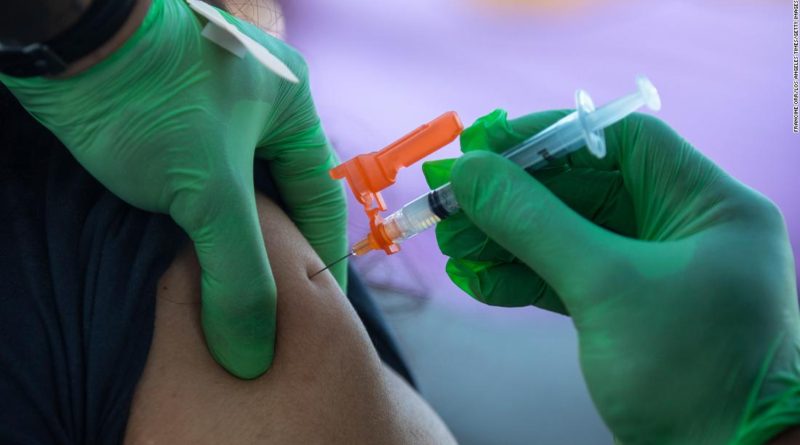US coronavirus: Los Angeles County sees exponential growth in Covid-19 cases as Delta variant becomes dominant, worrying officials
“We do continue to see an uptick in cases and hospitalizations,” Los Angeles County Public Health Director Barbara Ferrer said Thursday. “Deaths, fortunately, continue to be relatively low, but as hospitalizations continue to increase we anticipate that deaths might also increase.”
The overwhelming majority of those testing positive in the county are unvaccinated, representing 99.96% of all new infections, the release said.
The rate now surpasses 2% for the first time since early March, after hitting a low of 0.7% in early June, according to new data from the state’s Department of Public Health.
The Delta variant, first detected in India, has been found in 43% of new sequenced samples in California, the state said.
And it also makes up more than 50% of sequenced samples across the country. In some places, it’s even more, said Dr. Rochelle Walensky, director of the US Centers for Disease Control and Prevention.
“Although we expected the Delta variant to become the dominant strain in the United States, this rapid rise is troubling,” she said.
In parts of the Midwest and upper Mountain states, it accounts for about 80% of cases, CDC data suggests.
“Widespread vaccination is what will truly turn the corner on this pandemic,” Walensky said. “Please know, if you are not vaccinated, you remain susceptible.”
Pfizer says it’s developing a booster shot after seeing waning immunity
“As seen in real world data released from the Israel Ministry of Health, vaccine efficacy in preventing both infection and symptomatic disease has declined six months post-vaccination, although efficacy in preventing serious illnesses remains high,” Pfizer said in a statement emailed to CNN.
Israel’s health ministry had seen efficacy of Pfizer’s vaccine drop from more than 90% to about 64% as the Delta variant spread, it said in a statement this week.
But hours after the Pfizer statement, the US Food and Drug Administration and the CDC issued a joint statement saying Americans don’t need booster shots yet. Dr. William Schaffner, professor in the Division of Infectious Diseases at Vanderbilt University Medical Center, supported the US government’s stance.
“The answer is that our vaccines still are very, very effective in keeping us out of the hospital, in averting severe disease. That’s what they were designed to do,” he told CNN on Thursday. “Now, it’s a bonus if they can also prevent what we call infection. You can get infected, have mild symptoms or no symptoms at all. They diminish that possibility greatly. But they can’t turn it off completely.”
Former US Surgeon General Dr. Jerome Adams told CNN on Friday he found the apparent “lack of coordination on communication” between vaccine companies and the federal government “troubling.”
But he explained the differing views like this: Vaccine companies are thinking about the future — or as he said, “where the hockey puck is going” — while the government is thinking about the present and trying to convince the vaccine-hesitant to get inoculated.
“We know immunity does tend to wane over time as we go into winter,” he said. “We want to make sure we are in the best possible position to protect vulnerable people in nursing homes,” who were first vaccinated and would be at most risk from waning immunity and the Delta variant.
Meantime, government agencies like the CDC and the FDA want “to reassure Americans your best protection still is a vaccine and you still got great protection — better than for the flu shot in any given year — even in the face of variants and waning immunity.”
“Vaccinations are your best bet right now. They’re still incredibly effective,” Adams said. And if Americans ultimately need a booster shot, “people shouldn’t get too worked up about that,” he said. “We do that for the flu every single year.”
Vaccination gap widens
While experts have long stressed vaccines are the best defense against the pandemic, overall rates have dipped across the US.
Less than half of Americans were fully vaccinated as of Thursday, CDC data shows. And the difference in vaccination rates between Republicans and Democrats has grown over the last two months, a report released Thursday from the Kaiser Family Foundation shows.
Vaccination rates are increasing faster in counties that voted for Joe Biden in the 2020 presidential election than in counties that voted for Donald Trump, the new study finds.
The team used data comparing county-wide vaccinations numbers from the CDC with 2020 presidential election results.
In April, counties where most people voted for Trump had an average vaccination rate of 20.6%, compared to 22.8% in counties that went for Biden, the study found. By this month, the average vaccination rate in Trump-leaning counties was 35%, and 46.7% in Biden-leaning counties. The gap increased by 9.5 percentage points in under three months.
The researchers said these numbers get at the importance of targeted vaccination efforts that account for partisan opposition.
“A key component of any effort to boost vaccination rates among Republicans will be identifying the right messengers,” the researchers wrote.
“Republicans are most likely to trust their doctors and employers to provide reliable information on COVID-19 vaccines, while government sources are less trusted.”
CNN’s Jamie Gumbrecht, Maggie Fox, Virginia Langmaid and Cheri Mossburg contributed to this report.




